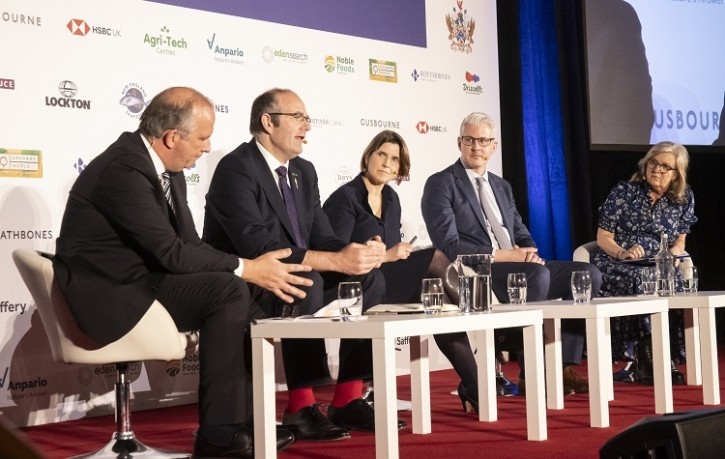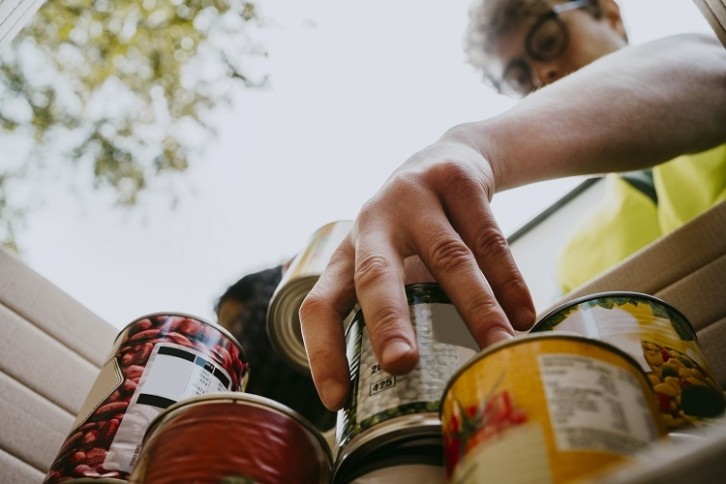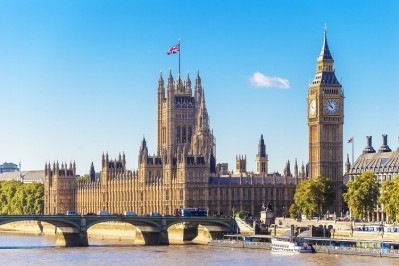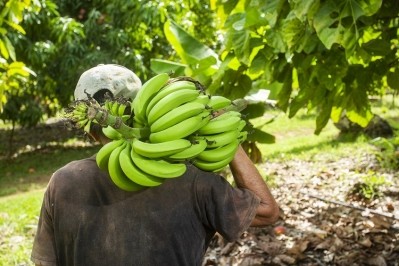The role of policy in a good food system

The food system is shaped by a myriad of forces, from consumers’ preferences to manufacturers’ profits to the sweat and steel of producers around the world. But one thing that plays a major role in how it develops is government policy.
At this week’s City Food and Drink Lecture in the Guildhall, London, figures from within and without industry agreed that in a range of issues, from health to the environment, industry cannot change without effective government policy.
Making food healthier
While it is important to make food affordable to the average consumer, the panel believed, so it is also important to ensure food is healthy. It takes government policy to tackle this issue.
“Obesity is costing our society £100bn per year, and we should be solving that issue with our food system. What a fantastic opportunity that is. But I can't solve that on my own, and none of us can solve that on our own. This takes grown up policy and some really difficult conversations. How do we achieve that in the long term?” asked Tom Bradshaw, president of the National Farmers Union (NFU) of the UK.

It is up to government as well as industry to combat the poor health content of our food, believes Dan Aherne, group CEO at New England Seafood International. “There are choices that government can make. We put subsidies in all sorts of places, and we can choose where we put them. I think it takes brave leadership and reform, and instead of accepting the inevitable consequences of the cost of the NHS going from six to ten billion in the next twenty five years, why don't we start doing something about that at the front end?” he said.
When it comes to ultra-processed foods, policy is already aiming to encourage consumers not to eat it, suggested Anna Taylor OBE, executive director at The Food Foundation. “Our policies at the moment are geared around trying to shift consumers away from those foods, whether it's to do with advertising regulations, or promotions, restrictions or positioning in store. So we need to stay on that policy track and not let ultra-processed foods somehow muddy the waters,” she said.
Food insecurity
On the other end of the scale, it is important for both government and the food industry to tackle food insecurity, suggested Taylor.
“Unfortunately, at the moment the pricing of foods across the whole range means that the least healthy foods are about half the price per calorie than the healthier foods, so we've got a problem: if you're on a very low income it's even harder for you to eat well in a way which protects your health. That's the challenge I think for the food industry, and there's an income challenge which is for government,” she said.
To combat food insecurity, suggested Simon Roberts, CEO of Sainsbury’s, food waste must be utilised. Policy, he suggested, plays a role in this as well. “I think as an industry, we can demonstrate what we can do in the amount of food either up in the supply chain or all the way through it that actually goes to waste. This can be repurposed really effectively. And there are big needs for policy to unlock that,” he said.
Coordination within the government is also key. “The priority of food security in this country has a different magnitude to it now even than five years ago and so government being coordinated in its response to that and its ability to engage with industry and every part of it in a much more connected way is a really key part of the change we need to see too.”
“How we feed 70 million people living on an island, is an absolutely crucial part of government policy,” added the NFU’s Bradshaw. “But it's been undervalued and underappreciated the role that the food system plays. We have legislative environmental targets, we as farmers will always be judged by how we leave the environment. But we need to put food on the same footing as environmental protection so that the two really do go hand in hand, and there can't be a poor relation between them. At the moment there is a poor relation, and that is food production.”
Protecting the environment
New England Seafood International’s Aherne believes that government policy is an important guiding hand to retailers when it comes to sustainability. “Every retailer has its own idiosyncrasies and often they can go through cycles and waves depending on what's going on, depending on the various pressures, depending on the leadership, but I do think there is a change afoot in UK retailing,” he said.
“I think that’s welcome, but I don't think without the government policy element as well having a level of consistency and long-term thinking, that needs to be there as well and we have to get that over . . . because that then creates the climate and the environment for the retailers to make (sustainability) commitments, which then filter down through the supply chain to the producers and the farmers.”
Last year's lecture
At last year’s City Food and Drink Lecture, Sir Charles Godfrey, population biologist and the director of Oxford Martin School, spoke about the potential impact of anti-obesity drugs on attitudes to obesity, as well as the impact of climate change, deglobalisation and armed conflict on the global food system.
The Food Foundation’s Taylor also pointed out the need for a broader horticulture strategy to protect fruit and veg vulnerable to climate change. “We would argue at the moment because so many of our imported fruit and veg being vulnerable to climate change as well as water scarcity, we can do a lot more to look at how we can have a really thriving sector here in the UK.”
Collaboration
One of the recurring themes among the guests was collaboration. In order to get a broad snapshot of a broad food system with so many moving parts, one must bring together voices from around the industry, Sainsbury’s Roberts suggested. Policy makers, he said, are a vital part of this.
“What's changing, and I think is a really positive, positive shift towards this idea of system thinking, is for example the IGD bring together all of the suppliers and all of the retailers to have one conversation in the room, often with policy makers too and I think I would expect and hope we can expand that approach.”
Such collaboration is a “real opportunity to influence the policies . . . whether that be on healthier diets, whether that be on the right balance of long-term measures in agriculture, whether that be in making sure that in every aspect of the food system we're in is much more joined up.”

























